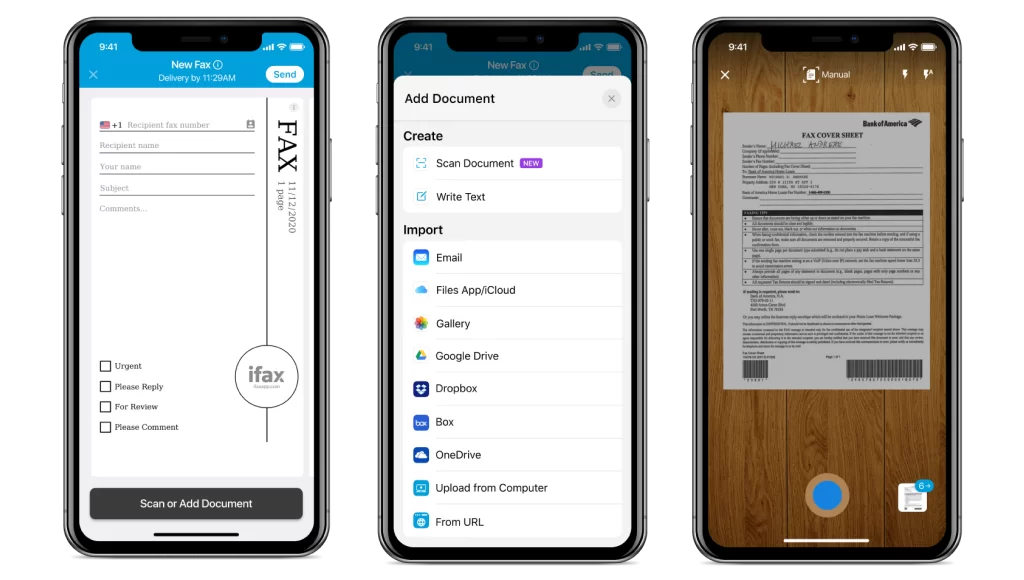Document scanning services are professional solutions that convert paper documents into secure, searchable digital files, allowing businesses to store, access, and share information more efficiently.
By replacing bulky physical records with easily retrievable digital copies, these services eliminate the challenges of paper management—such as lost files, limited storage, and slow workflows. Whether you’re running a small office or managing a large enterprise, using document scanning services is a practical way to improve productivity, enhance data security, and move closer to a fully digital workplace.
Table of contents
What Are Document Scanning Services?
Document scanning services digitize physical documents through high-resolution scanners and advanced imaging technology. Instead of manually archiving papers in filing cabinets, these services convert documents into digital files—typically PDFs, TIFFs, or other searchable formats.
Most providers use optical character recognition (OCR) technology to make scanned files text-searchable. This means you can quickly locate information by keyword rather than flipping through piles of paper. Additionally, secure document scanning services follow strict data security and compliance standards to ensure your sensitive records—such as financial statements, contracts, or patient information—remain protected.
Document scanning services can handle a wide range of materials, from standard letter-size pages to oversized blueprints and bound records. Some providers also offer on-site scanning for organizations with confidentiality concerns, ensuring that critical data never leaves your premises.

Why Businesses Use Document Scanning Services
The shift toward digitization is both convenient and strategic, enabling organizations to stay competitive and compliant. Here are the most common reasons organizations invest in a scanning documents service:
- Digital transformation: Modern businesses are moving toward paperless operations. Scanning services are often the first step in digitizing legacy files and integrating them into electronic document management systems (EDMS).
- Regulatory compliance: Industries like healthcare, finance, and legal services must maintain records for several years. HIPAA compliant document scanning helps ensure these documents are stored securely and retrievable in case of audits or legal inquiries.
- Disaster recovery: Paper files are vulnerable to fire, water damage, or loss. Digitizing them creates a backup that can be safely stored in the cloud, minimizing the risk of permanent loss.
- Operational efficiency: Employees spend less time searching for documents and more time on strategic tasks. Digital files can be shared instantly across departments or even remotely, supporting hybrid work environments.
- Cost savings: While there’s an upfront cost to scanning, the long-term savings from reduced storage space, printing, and administrative overhead are significant.
In short, businesses use document scanning services to improve accessibility, ensure compliance, and enhance overall productivity.
Key Benefits of Document Scanning
When you scan documents and utilize digital records, you’re not just decluttering your office. Here are the most impactful benefits:
1. Enhanced Data Security
Paper documents are easy to misplace or steal. Digital files, however, can be encrypted, password-protected, and backed up in secure cloud environments. This ensures that only authorized users can access sensitive information.
2. Streamlined Workflows
Scanning services enable seamless document sharing and retrieval. You can integrate scanned files with existing business systems like CRM or ERP platforms, reducing bottlenecks and manual handling.
3. Improved Collaboration
Digitized documents can be accessed from anywhere, allowing team members to collaborate in real-time—whether they’re in the office, at home, or on the go. This is especially beneficial for businesses with multiple locations or remote teams.
4. Sustainability
Going digital reduces your carbon footprint by cutting down on paper usage, printing, and storage materials. It’s an environmentally responsible step that also aligns with many corporate sustainability goals.
5. Scalability
As your business grows, managing paper archives becomes increasingly complex. Digital storage, on the other hand, scales effortlessly. You can add thousands of files without expanding your physical footprint.
6. Better Customer Service
Quick access to information allows employees to respond faster to customer requests. Whether it’s retrieving an invoice, a contract, or a claim form, digital documents help you deliver service efficiently and accurately.

Types of Document Scanning Services
Different organizations have unique scanning needs. Understanding the types of document scanning services available can help you choose the right one for your workflow:
1. Bulk Scanning
Ideal for businesses with large volumes of paper records, bulk scanning involves converting thousands of pages at once. This is often used during office relocations or digital transformation initiatives.
2. Secure and HIPAA Compliant Document Scanning
Healthcare and legal sectors demand strict data protection. Providers offering HIPAA compliant document scanning ensure that every step—from handling to file transfer—meets privacy and security standards.
3. On-Demand Scanning
This service allows you to scan documents as needed rather than digitizing everything at once. It’s suitable for small businesses or departments looking for flexibility without committing to a large-scale project.
4. OCR Scanning
OCR (Optical Character Recognition) scanning transforms images of text into searchable, editable data. It’s commonly used for invoices, forms, and reports that need to be indexed or integrated into digital systems.
5. Large Format Scanning
Blueprints, engineering drawings, and architectural plans require specialized scanners that handle oversized documents without compromising detail or accuracy.
6. Book and Archive Scanning
Libraries, schools, and government offices often rely on archive scanning to preserve old or delicate records. These services ensure historical or reference materials remain accessible in digital form.

Industries That Benefit Most from Document Scanning
While nearly any organization can benefit from digitization, some industries depend heavily on document scanning services to maintain compliance and efficiency:
- Healthcare: Clinics and hospitals digitize patient records, consent forms, and billing statements to comply with HIPAA regulations and improve care coordination.
- Legal: Law firms scan contracts, affidavits, and case files to streamline case management and ensure quick access to documentation.
- Finance: Banks and accounting firms digitize checks, receipts, and transaction records to simplify audits and reduce storage costs.
- Education: Schools and universities scan student records, transcripts, and administrative files for easier management and archiving.
- Government: Agencies use document scanning to modernize recordkeeping systems, reduce paper waste, and increase transparency.
- Real Estate: Agents and property managers digitize leases, contracts, and title documents for easy retrieval and client servicing.
Each of these sectors faces regulatory, operational, and logistical challenges that digital solutions can effectively address.

How iFax Complements Document Scanning Services
Once your documents are scanned and digitized, the next challenge is sharing them securely. That’s where iFax comes in.
iFax complements document scanning services by providing a seamless way to send, receive, and store scanned documents online. Instead of printing and faxing paper copies, users can upload digital files directly from their device or cloud storage and transmit them via a HIPAA-compliant online fax platform. This ensures sensitive information—such as patient records, contracts, or financial forms—remains encrypted and secure throughout transmission.
Moreover, iFax integrates with popular cloud tools like Google Drive and Dropbox, allowing users to manage their scanned files efficiently within their existing workflow. Whether you’re a healthcare provider faxing medical forms or a legal firm sharing confidential case documents, iFax simplifies the process while maintaining full compliance with privacy laws.
Ready to streamline your document workflow? Combine your document scanning efforts with iFax’s secure online faxing platform to take your business fully digital—efficiently, safely, and paper-free.







